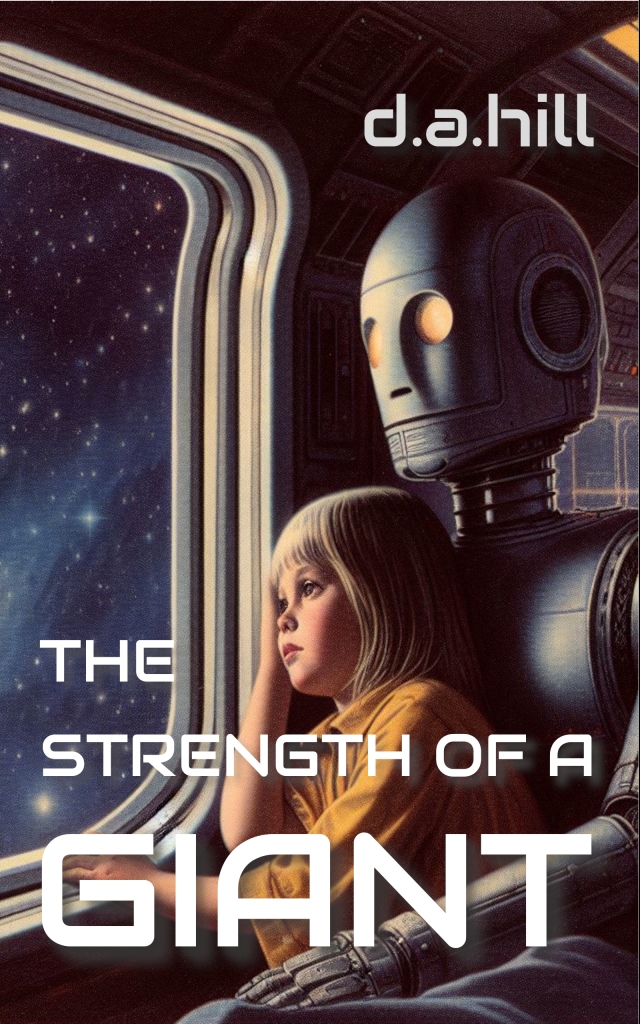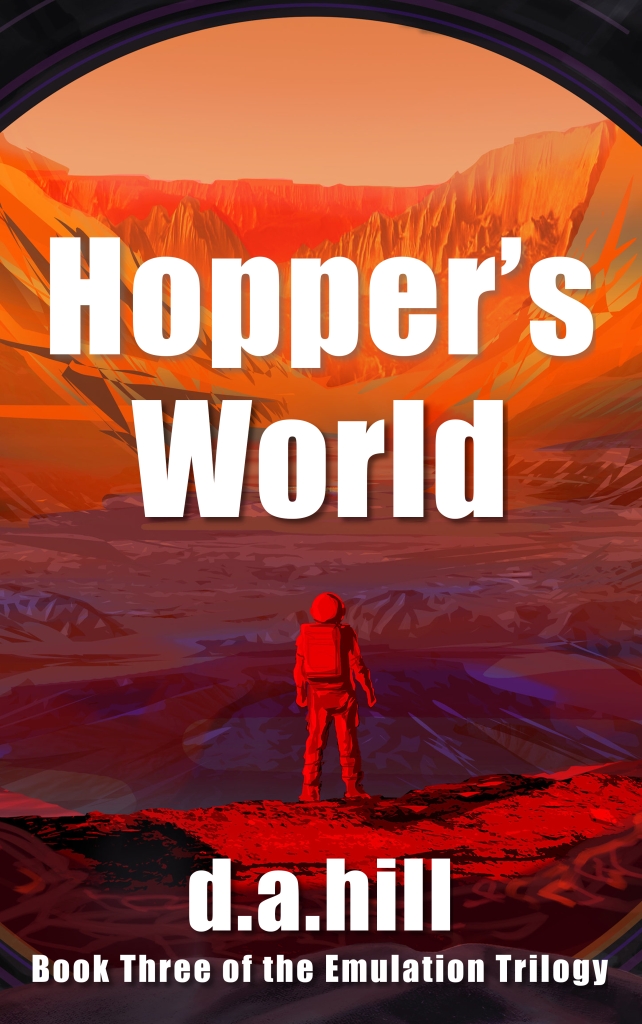While I was in the middle of writing The Strength of a Giant, Large Language Models such as CHAT-GPT suddenly became the hottest thing. Since I was writing a story in which superintelligent AIs play a key role, it would have been remiss of me not to test these systems.
The test I consider a complete success was using DALL-E 3 to generate the cover image with the following prompt: “A young girl, being comforted by an android, as she looks wistfully out the window of a starship, in the style of a 1970s science fiction book cover.”
I had mixed success using CHAT-GPT to improve my prose. In general, its success in identifying candidates for stylistic improvements (e.g. “identify cases of telling rather than showing”) was hit and miss, and the style of its suggested changes overly dramatic.
Using CHAT-GPT to do hard research was a complete failure. In response to “give me a list of ten stars between 300 and 350 light years from Earth, each with a link to the relevant scientific data,” it generated a list, but on checking the links not one of the stars met the criteria!



